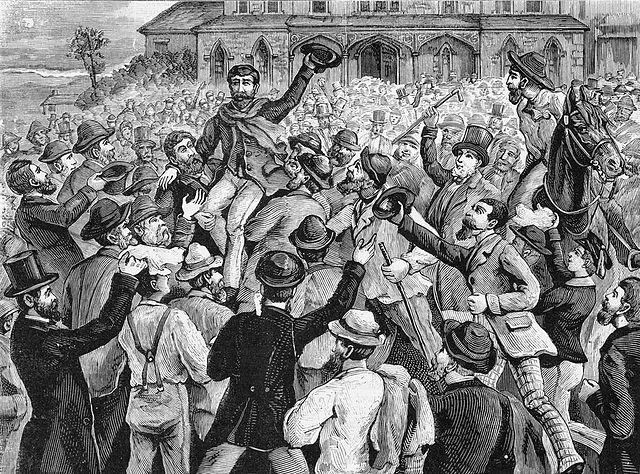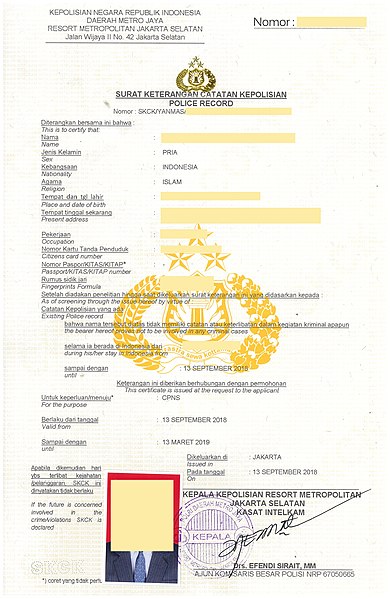A criminal record is a record of a person's criminal convictions history. The information included in a criminal record and the existence of a criminal record varies between countries and even between jurisdictions within a country. In most cases it lists all non-expunged criminal offences and may also include traffic offences such as speeding and drunk driving. In most countries a criminal record is limited to unexpunged and unexpired actual convictions, while in some it can also include arrests, charges dismissed, charges pending and charges of which the individual has been acquitted.
The term rap sheet refers to Record of Arrest and Prosecution, similar to a criminal record.
The criminal record for Al Capone from 1932
An Indonesian Certificate of Police Record issued in 2018 for the purpose of application to civil service position. This certificate states that the individual in question does not have any criminal record.
In common law jurisdictions, an acquittal means that the prosecution has failed to prove that the accused is guilty beyond a reasonable doubt of the charge presented. It certifies that the accused is free from the charge of an offense, as far as criminal law is concerned. The finality of an acquittal is dependent on the jurisdiction. In some countries, such as the United States, an acquittal prohibits the retrial of the accused for the same offense, even if new evidence surfaces that further implicates the accused. The effect of an acquittal on criminal proceedings is the same whether it results from a jury verdict or results from the operation of some other rule that discharges the accused. In other countries, like Australia and the UK, the prosecuting authority may appeal an acquittal similar to how a defendant may appeal a conviction — but usually only if new and compelling evidence comes to light or the accused has interfered with or intimidated a juror or witness.

The acquittal of the defendants in the Eureka Rebellion is celebrated by community members.



